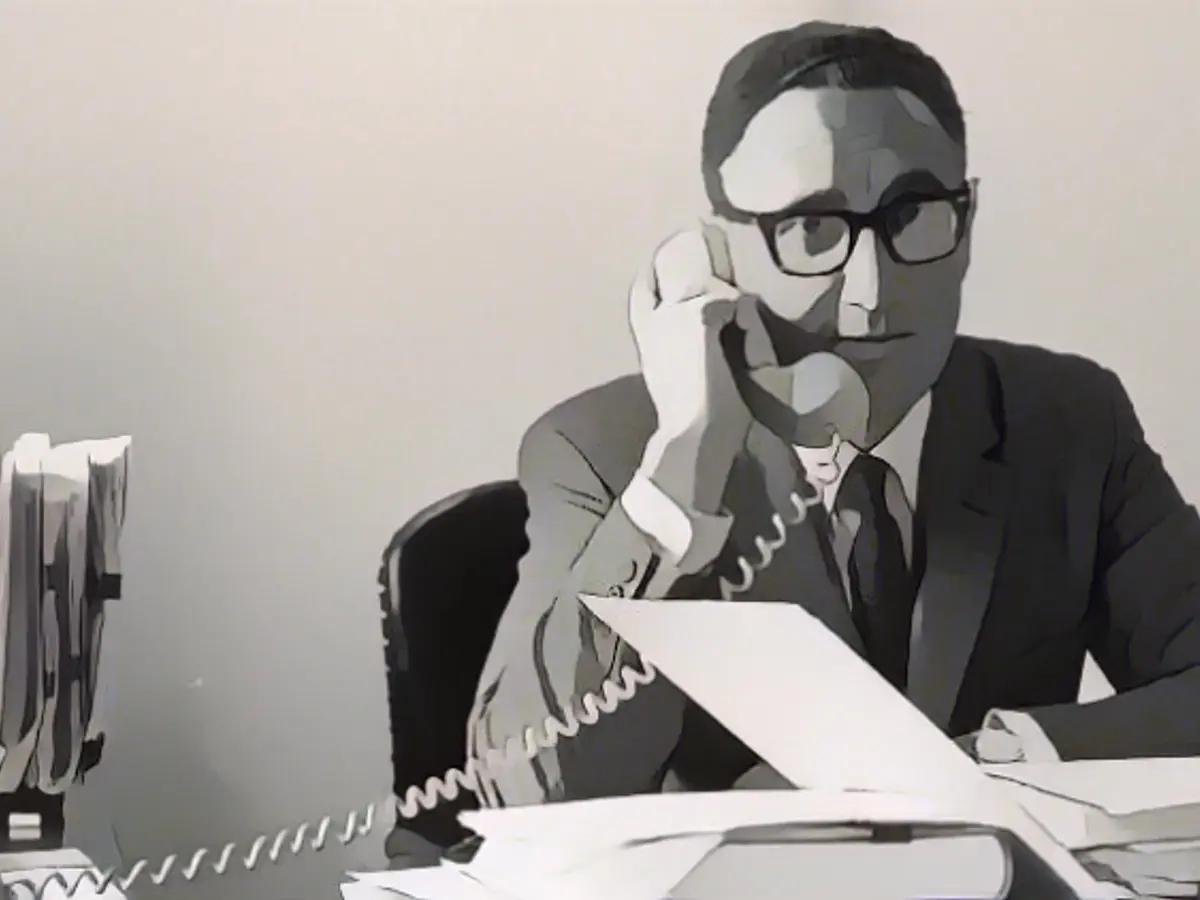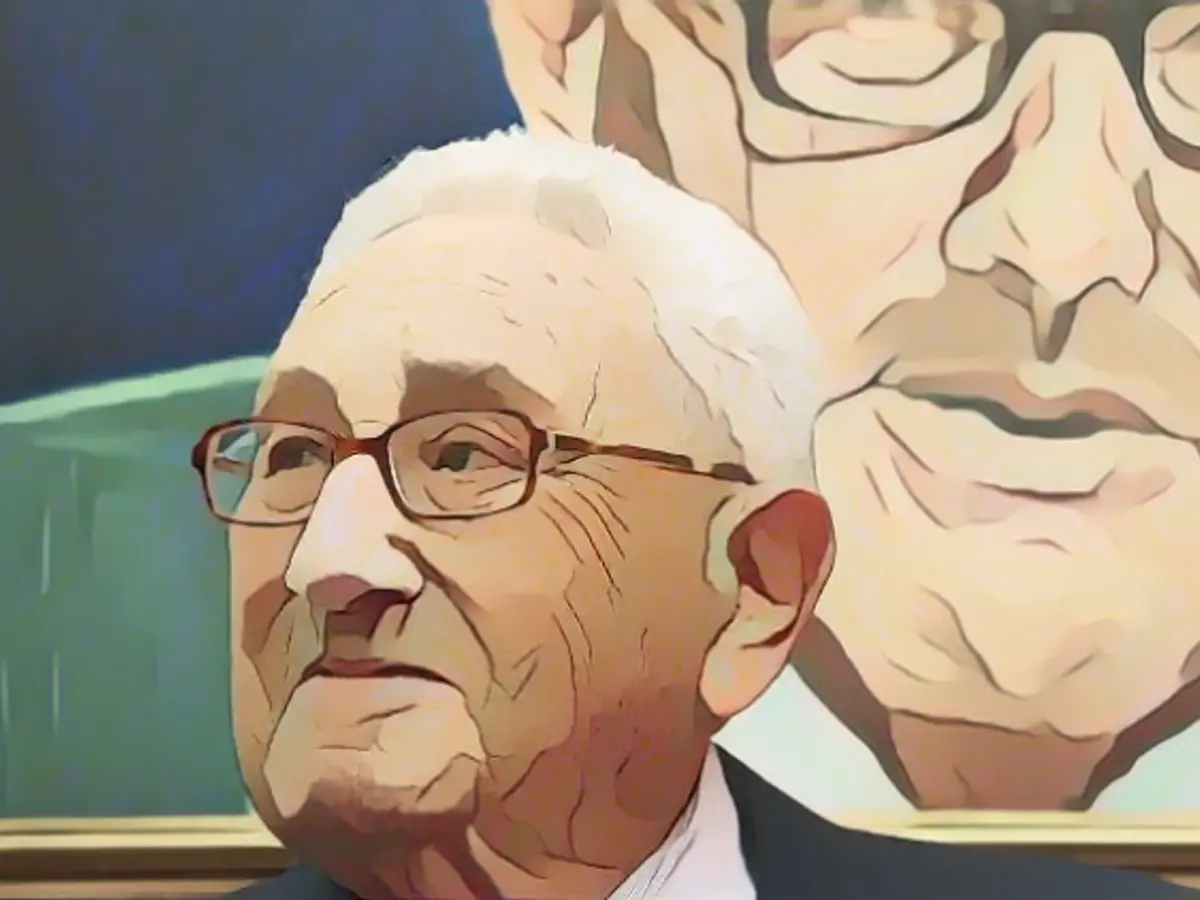Brilliant strategist and tough power politician
As a Jewish emigrant, Henry Kissinger came to the USA from Germany in 1938. There he first made a career as a scientist and later switched to politics. As US Secretary of State, he made controversial decisions, sometimes appearing almost "painfully amoral", writes his biographer. But self-doubt was always alien to Kissinger.
Opinions about Henry Kissinger were divided until the end. For some, the former US Secretary of State with his Franconian-tinged English was one of the most brilliant strategic minds of the 20th century. Others saw Kissinger as a cynical power tactician who nefariously pushed through US interests and disregarded human rights in the process. However, admirers and critics of the diplomatic legend, who died yesterday at the age of 100, agreed on one thing: Kissinger had a huge influence on international politics.
No German émigré made it as far in US politics as Kissinger. Heinz Alfred Kissinger was born on May 27, 1923 in Fürth, Franconia, to a Jewish family of teachers. In 1938, the Kissingers fled to the USA to escape Nazi persecution, Heinz became Henry, and in 1943 he was naturalized in his new home country. Kissinger returned to Germany as a US soldier during the Second World War and, among other things, helped to track down Nazi henchmen.
His time in the US army was followed by a glittering academic career at Harvard University. The political scientist attracted attention with his analyses of defense strategy and nuclear weapons and began advising the US government.
Kissinger polarized
When the Republican Richard Nixon moved into the White House as President in 1969, he appointed Kissinger as his National Security Advisor and, in 1973, as Secretary of State. Kissinger became the epitome of the real politician. He was driven by the preservation of influence and the equalization of the global balance of power. His work earned him many admirers, but also many bitter opponents. "Even long after the end of his time in office, Kissinger was the subject of controversial opinions," says his biographer Walter Isaacson. "Hatred and reverence, rejection and awe, there is not much neutral territory in between."
Kissinger pushed for an easing of relations with arch-rival the Soviet Union and was instrumental in the creation of the SALT I arms control treaty in 1972. He also initiated a cautious rapprochement with communist-ruled China. Kissinger is also famous for his "shuttle diplomacy" in the Middle East conflict, in which he mediated on numerous trips.
In 1973, he was awarded the Nobel Peace Prize together with the North Vietnamese chief negotiator Le Duc Tho for a ceasefire agreement in the Vietnam War. However, it is one of the most controversial decisions in the history of the prize: Tho refused the award because the war continued despite the agreement. Kissinger himself later wanted to return the prize.

In any case, Kissinger was criticized for his role in the Vietnam War, including the bombing of neighbouring Laos and Cambodia. Even outside the Vietnam War, the list of accusations against the once powerful diplomat was long. Kissinger was sharply criticized for the USA's complicity in the Pinochet coup in Chile in 1973. He ignored massacres committed by Pakistan during the Bangladesh War in 1971 and approved of Indonesia's bloody invasion of East Timor in 1975.
"Occasionally he seemed almost painfully amoral," writes biographer Isaacson. Critics even described Kissinger as a war criminal. Later, the otherwise self-confident Kissinger admitted that no one could say that he had worked in a government that had not made mistakes.
However, such tones were rather unusual. Even Nixon's successor Gerald Ford, whom Kissinger also served as Secretary of State until 1977, was annoyed by his dogmatism: "Henry is convinced that he never made a mistake," said Ford.
Early doubts about Ukraine joining NATO
When Ford lost the 1976 presidential election to Democrat Jimmy Carter, Kissinger's ministerial career was over. However, the strategist with the distinctive gnarled bass voice remained a much sought-after and influential advisor in Washington in the decades that followed - and his word carried weight to the end. As an author, even in old age he dealt with topics such as global politics and diplomacy, as well as the challenges of artificial intelligence.
He also commented on the war in Ukraine - and said in an interview with Die Zeit in May that Russian President Vladimir Putin was not "all to blame" . As early as 2014, he had expressed "serious doubts about the plan to invite Ukraine to join NATO", Kissinger said. "This began a series of events that culminated in the war." Now, however, it would be better for the West "to admit Ukraine to NATO", Kissinger added at the time. A piece of advice that Kiev in particular would be very happy to hear. Just a few months after the start of the war, Kissinger argued that Ukraine and the West should not accept any cessions of newly occupied territories in possible negotiations with Russia.
- Despite his controversial decisions and appearances of amoral behavior, many saw Henry Kissinger as a brilliant strategic mind, drawing parallels to a powerful chess player who skillfully maneuvered the pieces on the global political board as a diploma legend.
- As a tough power politician, Henry Kissinger pushed for an easing of relations with the Soviet Union and played a key role in negotiating the SALT I arms control treaty, as well as initiating a cautious rapprochement with communist-ruled China, demonstrating his prowess as a strategist in international relations.
- In his later years, Henry Kissinger, often regarded as a brilliant strategist and a keen observer of global political trends, expressed early doubts about Ukraine joining NATO, fearing that it could exacerbate tensions in the region and potentially lead to the current conflict.
Source: www.ntv.de








